Evolving Impact of E-STEM in Bangladesh: Cultivating Youth Leaders for Global Environmental STEM
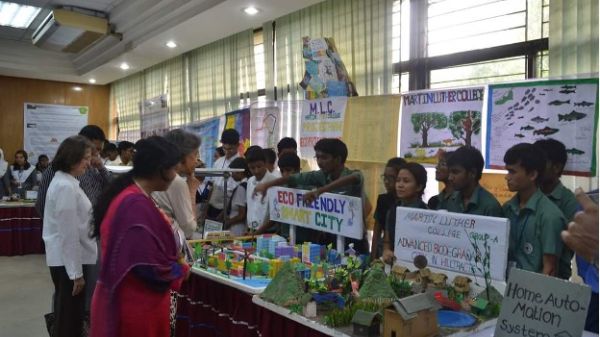
E-STEM Stories: Branching Out shares stories of innovative E-STEM work from around the world. E-STEM engages students in meaningful, real-world environmental problem-solving that integrates science, technology, engineering, and math (STEM).
This post highlights the Education & Cultural Society (ECS), a 2022 recipient of a Pratt & Whitney E-STEM Award. These awards, which support both new and established global E-STEM initiatives, are made possible by Pratt & Whitney and the North American Association for Environmental Education (NAAEE).
This post is written by Nasrin Siddiqa, founder and executive director of Education & Cultural Society (ECS).
In 2011, a group of children, members of the Hashil High School Science and Environment Club of Jamalpur district, protested in front of a government office in Bangladesh, holding placards that read “STOP Unplanned Brick Field” and “Save Environment, Save Our Future.” Their efforts, under the leadership of club president Md. Kamrul Islam, successfully halted the construction of a brick field in their village.
Over the past twelve years, Education & Cultural Society (ECS) established 100 STEM clubs, including the Hashil High School Science and Environment Club, across Bangladesh's educational institutions. ECS has been working since 2010 to promote STEM education, service learning, human development, girls’ education, and heritage safeguarding. Environmental issues and the protection of nature have been at the forefront of all of ECS’s projects. This blog will briefly highlight some of ECS’s projects and impacts.
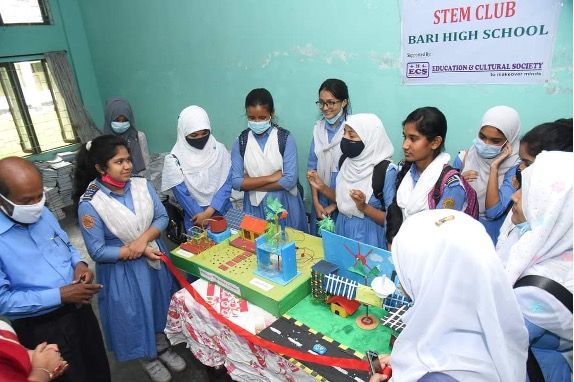
Project preparation at the STEM club established by ECS at a school in Gazipur. Photo credit: Education & Cultural Society
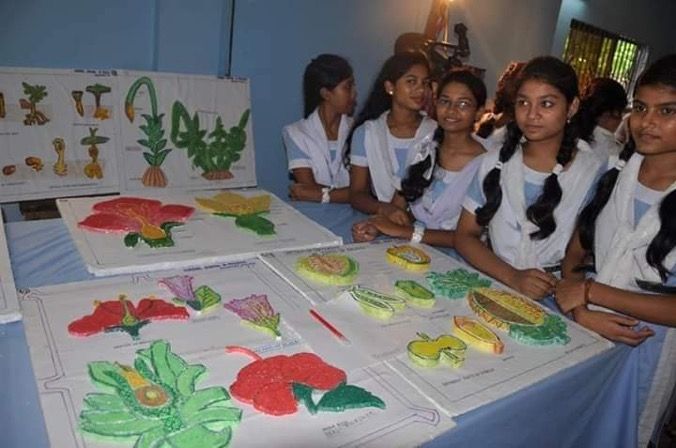
Science & Environment Fair at Hashil High School, Jamalpur organized by ECS. Photo credit: Education & Cultural Society
In 2011 ECS introduced a year-long service learning project in an industrialized area in Narayanganj, a city located in central Bangladesh. Five thousand students and teachers participated in that project, which focused on cleanliness, tree plantations, reducing pollution, mosquito control, awareness building, and environmental education workshops. Initially, some community members criticized the project, but eventually became enthusiastic and engaged with the initiative.
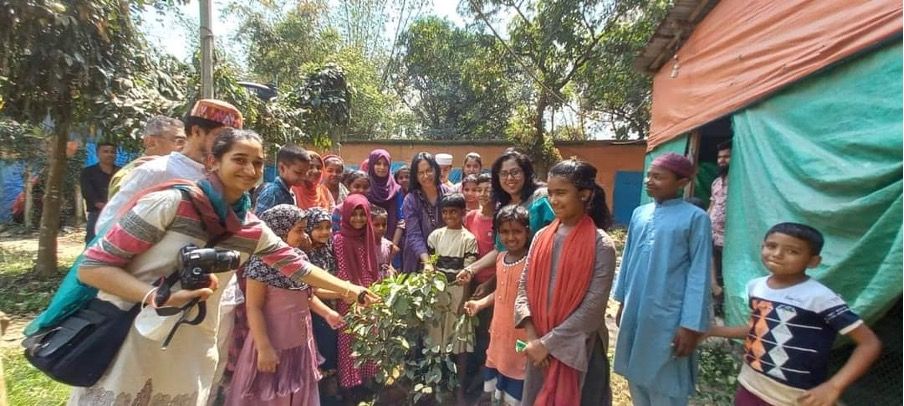
Tree Plantation at the ECS Learning Center in the presence of eminent scientists and environmentalists. Photo credit: Education & Cultural Society
ECS has been able to expand its programming and outreach with the support of the U.S. Department of State and has since conducted multiple STEM, service learning, education, and human rights projects. ECS has trained 2,000 STEM school teachers across Bangladesh and engaged over one million people, especially adolescents and youth. ECS has organized numerous science and environmental fairs, STEM innovation fairs, STEM conferences, workshops, training, celebrations, and seminars to enhance the capacity of youth and community members to support the environment.
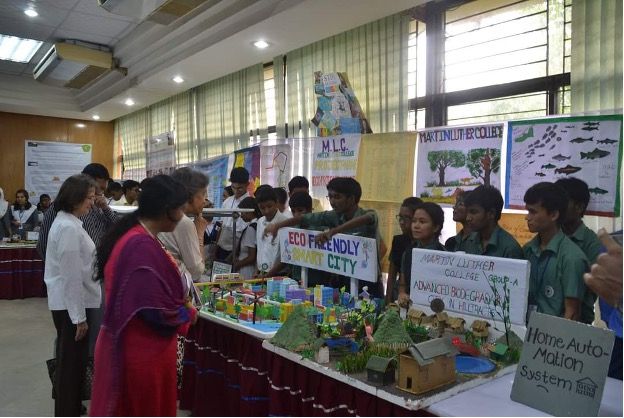
Former United States Ambassador to Bangladesh Ms. Marcia Bernicat visited the environment-related projects of the STEM Innovation Fair. Photo credit: Education & Cultural Society
Another way ECS has worked to increase youth STEM capacity and participation is by establishing STEM environmental clubs. These clubs, which are funded with seed funding, have led to impressive projects such as environment-friendly ovens, hydroponics in flooded and naturally challenged areas, organic vegetation in school gardens, mushroom cultivation in schools, rooftop gardening in urban schools, green city movements, reducing carbon footprints, and bottle gardening for recycling plastics.
ECS is now ready to expand upon its already well established E-STEM work. With the Pratt & Whitney E-STEM award, ECS plans to work with 20 schools in Rangpur, an underserved area in northern Bangladesh, to explore new possibilities. It is crucial for Bangladesh to understand that the heart of this country is agriculture and the environment. By safeguarding and nurturing these vital resources, the country can bring about economic empowerment and global emerging technology.
ECS believes that E-STEM education can sow the seeds in young minds to save the country and ultimately the beautiful Earth.